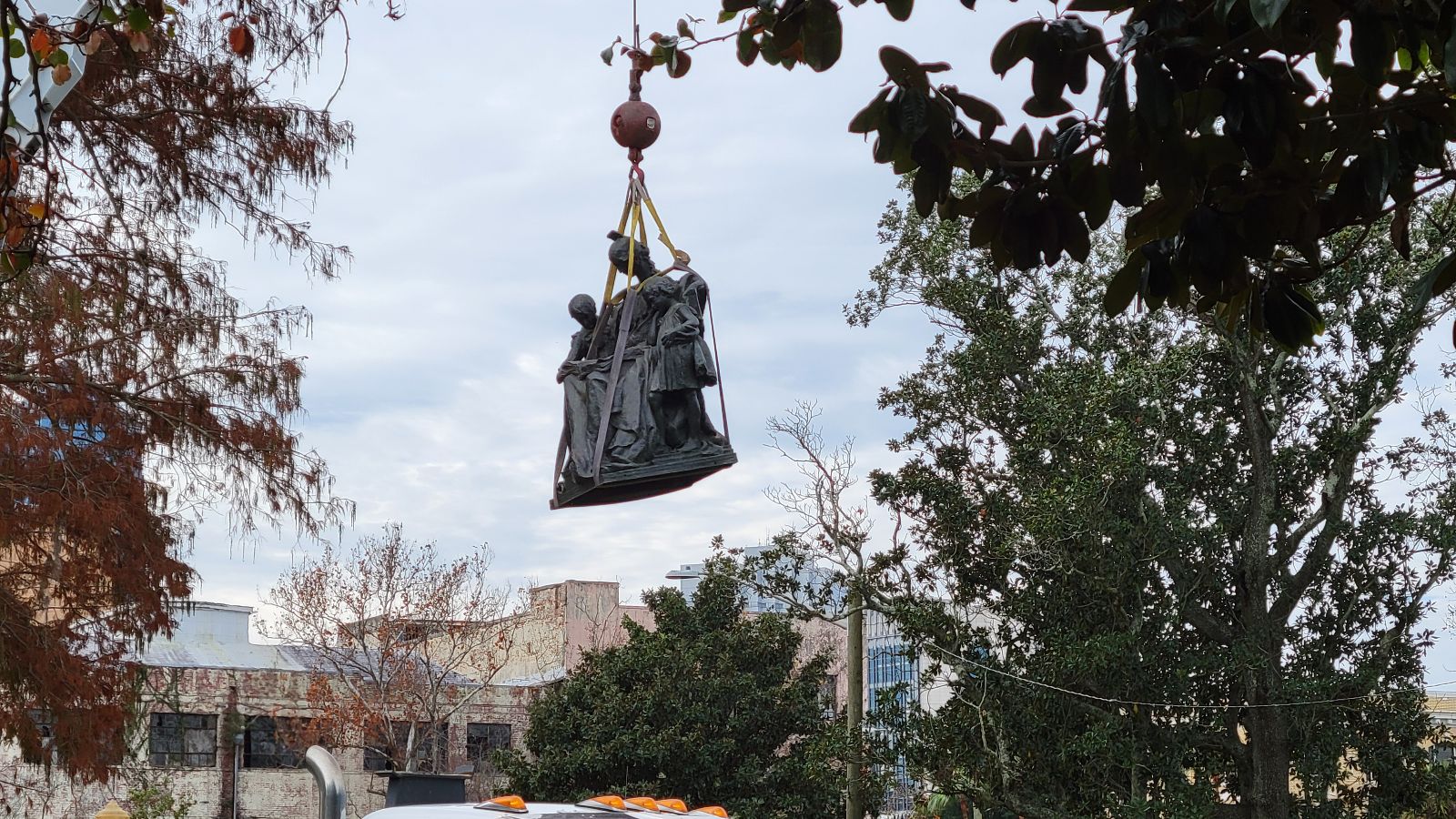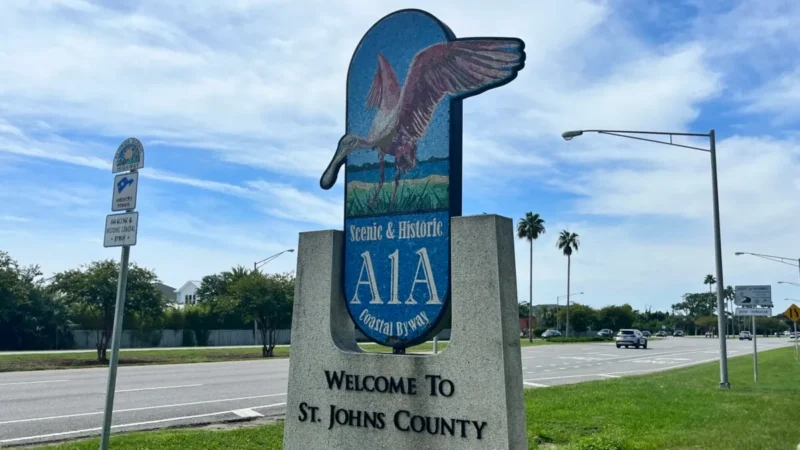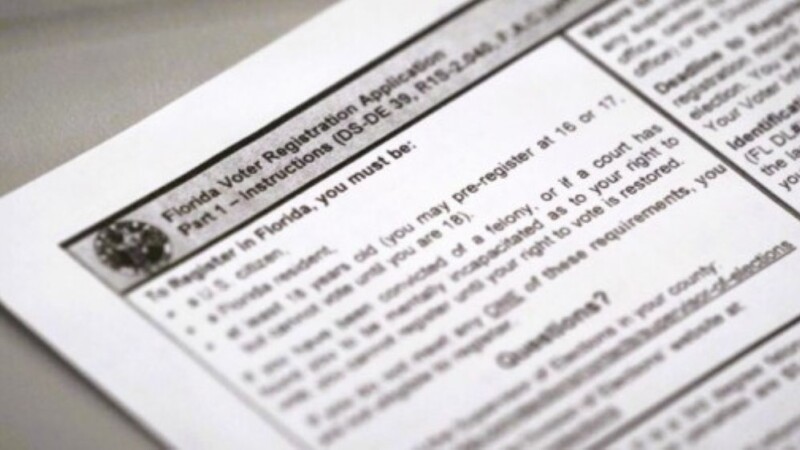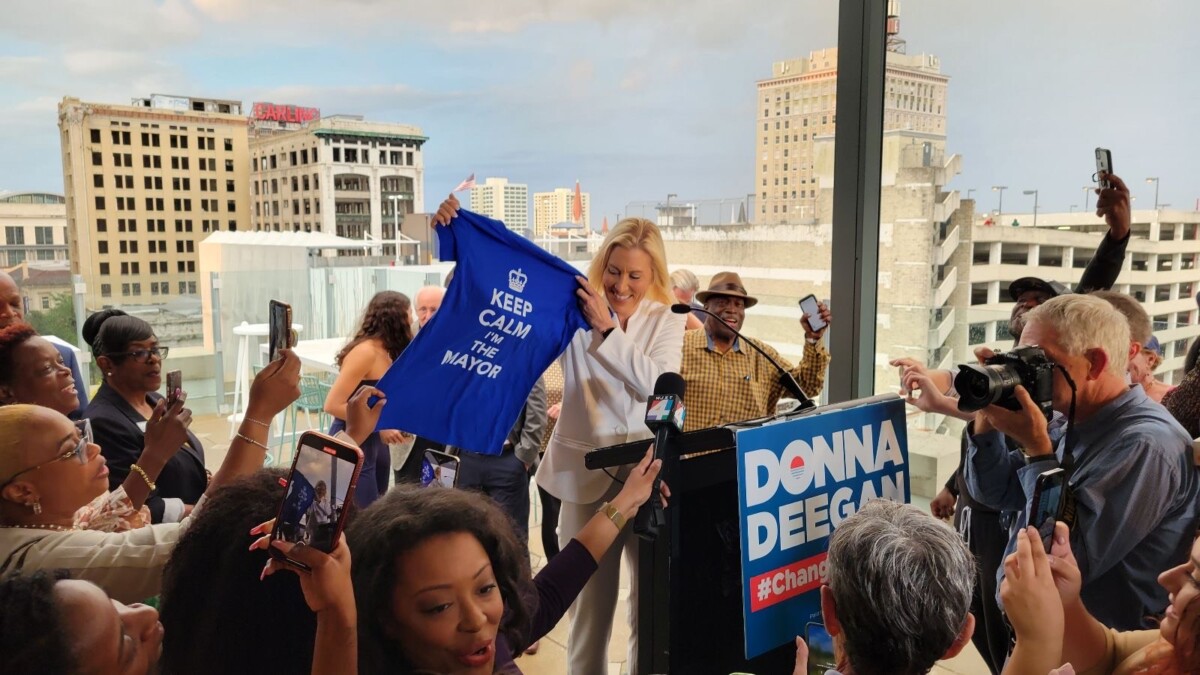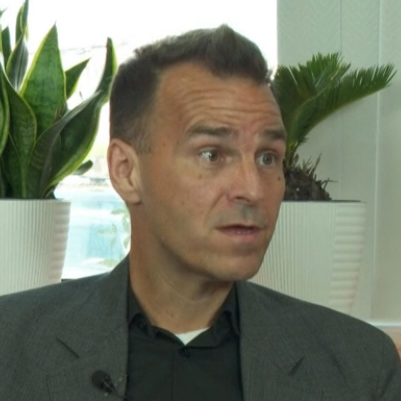
What good is political capital if you don’t use it?
George W. Bush posed that rhetorical question shortly after he won re-election in 2004 against John Kerry.
And that’s the question asked and answered by the Donna Deegan administration on Boxing Day last year, when the Democrat sidestepped the supermajority Republican City Council, authorizing the removal of a Jim Crow-era statue from the city’s former Confederate Park.
The departure of the Women of the Southland statues irked City Councilman Nick Howland and the chair of the Duval Republicans – Rep. Dean Black, who is carrying a bill designed to ban the removal of any historical monuments.
However, in what was the first significant move by new General Counsel Michael Fackler, the mayor’s office and private donors found a way to sidestep the appropriations process – which had stumped Lenny Curry for whatever reason – and use private donors and a favorable contract term to undercut previous cost estimates.
Fackler, an Avondale lawyer who was confirmed unanimously by the same City Council that wouldn’t even consider the historically pro-monument Randy DeFoor to fill the role, effectively laid out his argument in a memo questioning whether the structure was even “historical” or a “contributing structure” to the Springfield historical district.
His position was based in local ordinance not making that designation clear, a canny argument rooted in textual literalism. It’s a hard argument to impeach locally in the short term, given that the city’s lead lawyer explicitly says, “There would be no further recourse to challenge the monument’s removal.”
The memo also notes regarding Black’s bill, that Gov. DeSantis “cannot implement an unconstitutional statute retroactively to penalize the mayor from exercising her exclusive executive powers over parks under the consolidated city’s unique charter.”
Unconstitutional, a term of art, is in the eye of the beholder … and it is the current governor and not the GC who appointed the judges and justices.
Indeed, in an ironic touch, given DeSantis’ own outsized appropriation of executive prerogative, Fackler’s case is steeped in a similar belief in the separation of power and the executive branch’s exercising its full authority “through the director of parks… to remove monuments.”
The action is a prime example of localized defiance. Tallahassee Republicans have sought to punish home rule advocates for years now, attempting to cede powers of local decision making to the state and corporations that fund its political process. Fackler’s memo and Deegan’s decision, both in terms of the timing and the execution, are intended to challenge that process. It is an audacious play.
Timing is everything, of course, and roughly 24 hours after Jacksonville’s monument to Southern womanhood went down, the Senate version of Black’s anti-localist bill was filed. And Gov. DeSantis made it clear, during remarks in Iowa, that he wasn’t happy with Deegan’s decision.
“I’m opposed to taking down statues. The idea that we’re going to just erase history is wrong. You’ve seen it now where they tried to take down Thomas Jefferson, they tried to take down George Washington off schools. It just gets so out of hand.
“So I don’t support taking down statues, particularly if you don’t have legal authority to do it. I don’t know what the legal basis was to do it. I just kind of got a report on it, but I would not be taking down statues,” DeSantis added.
The governor’s vaguely threatening language suggests an endorsement of the monument protection bill – which is potentially dangerous for Mayor Deegan. While legislation goes through many changes in the committee process, both the House and Senate products leave an opening for potential suspension or removal of local officials who dare to remove statuary.
Meanwhile, there’s a non-zero chance Florida’s chief executive could suspend Jacksonville’s in a fit of pique or power projection over this. The governor has not just suspended local officials over the years but he has celebrated those moves and their attendant subversion of local control. He’s also stacked the judiciary, one already skewed to the right by decades of Republican governors before him.
One interesting wrinkle here is worth noting, meanwhile, and it’s that Michael Fackler was the compromise candidate for general counsel. Would the notoriously pro-monument Randy DeFoor have facilitated the same conclusion on behalf of the mayor’s office, empowering the executive branch at the expense of a City Council paralyzed for years by the bruisings they take during public comment from the “Southern heritage” enthusiasts who show up every two weeks?
Probably not. And the irony is that men on the City Council objected so strenuously to DeFoor that they essentially gave Deegan a general counsel as responsive to her administration’s needs as Jason Gabriel was to those of former Mayor Lenny Curry. They all voted for Fackler, and in doing so, they signed off on his novel legal argument whether they meant to or not.
Going forward, what happens?
In the short term, the City Council will likely pass a law that stops the mayor from using private funds to do public work, given that President Ron Salem is drafting legislation.
Ironically enough, Deegan’s decision to sidestep public funds for the removal project called the bluff of the City Council as expressed in the Lenny Curry era, which repeatedly balked at spending taxpayer money on relocating the statue. It’s hard to imagine another situation in which the mayor will have to go around the City Council, though, so this law may be a retroactive cure for a defect in the ordinance not likely to be exploited again.
Salem told Action News Jax he’s not interested in re-litigating the monument controversy itself, which suggests that the structure is down permanently unless Gov. DeSantis sends the Florida State Guard in to restore it – which we can’t rule out at this writing.
It remains to be seen, also, if the monument issue will resurface as a 2027 mayoral race talking point. It’s hard to imagine the Republican who will run on restoring the structure in Springfield Park. It’s actually a comic exercise to imagine how that campaign would go.
But the issue may resurface not as one about whether the city needs monuments to the losing side in the Civil War 160 years after Robert E. Lee surrendered at Appomattox, but as a problem with an undisciplined executive branch that dispensed with traditional divisions of power and prerogative to sidestep the City Council.
Expect that Deegan’s political enemies are quietly anthologizing grievances against her, similar to what happened to Alvin Brown more than a decade ago, and are spending 2024 and at least some of 2025 engaged in an invisible donor primary designed to elevate a consensus Republican candidate for mayor.
And really, there can only be one major GOP hopeful if the strategy is to make Deegan a one-termer.
Though Lenny Curry managed to defeat Alvin Brown in 2015, he wasn’t helped by the presence of Bill Bishop in the race, especially given Bishop’s endorsement of the Democratic mayor down the home stretch of the election. But it would have gone worse for Curry if someone like Bill Gulliford (the Council president who bedeviled Brown) were also in the race.
Who could run this time around? State Sen. Clay Yarborough is a presence in Tallahassee but doesn’t appear at this writing to be on the leadership track, so he is a possibility. Likewise, Nick Howland could make a move, after spending this term attempting to be a counterweight to this mayor. And other potential candidates are likely to emerge.
For years, the local discussion was how to get the monument out of Springfield Park. Now it’s about fallout and consequences. And it’s clear there will be ramifications for years to come.
But for Deegan, who promised to resolve this issue as a candidate, it was a way to fulfill that pledge in a way that honored the aspirational spirit of her run for office, a poetry often muddled with the prosaic mechanics of governance.
It also looks, from the outside, as if she’s comfortable being a one-term mayor if it means effecting real change during her time in office. The last two mayors have seemed to eye climbing the political ladder. The current mayor is one of the strongest members of a weak Democratic bench statewide, to be sure, but what’s clear is she will rise or fall by her own instincts.
Correction: A previous version of this column incorrectly stated that First Lady Casey DeSantis and Mayor Donna Deegan were once colleagues at First Coast News in Jacksonville. Their time at the station did not overlap.



